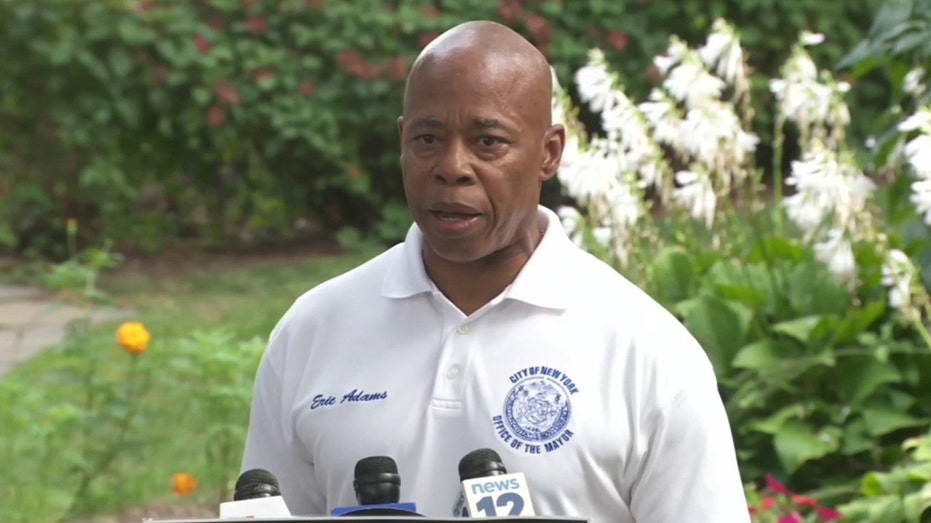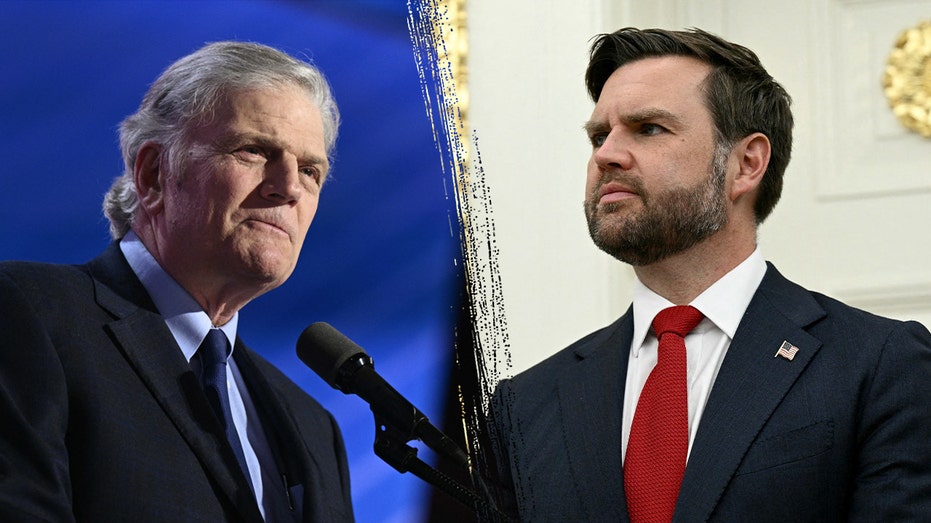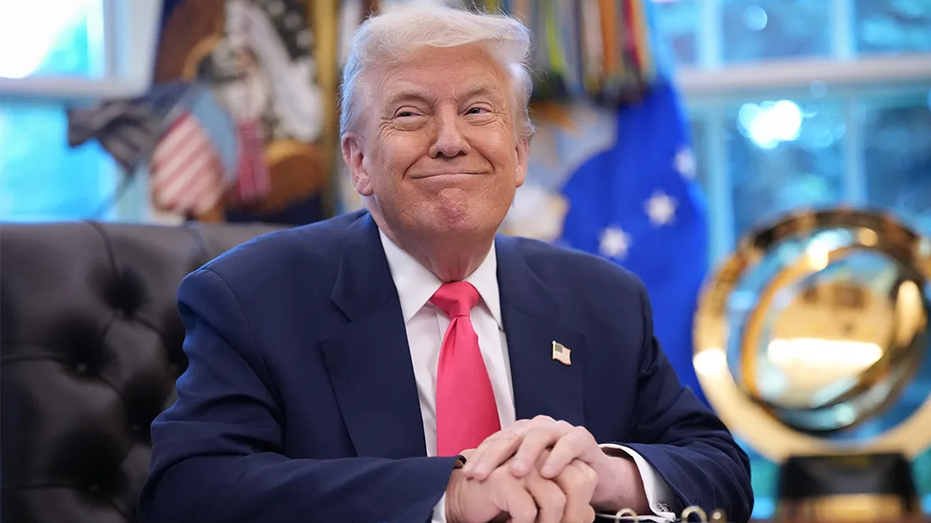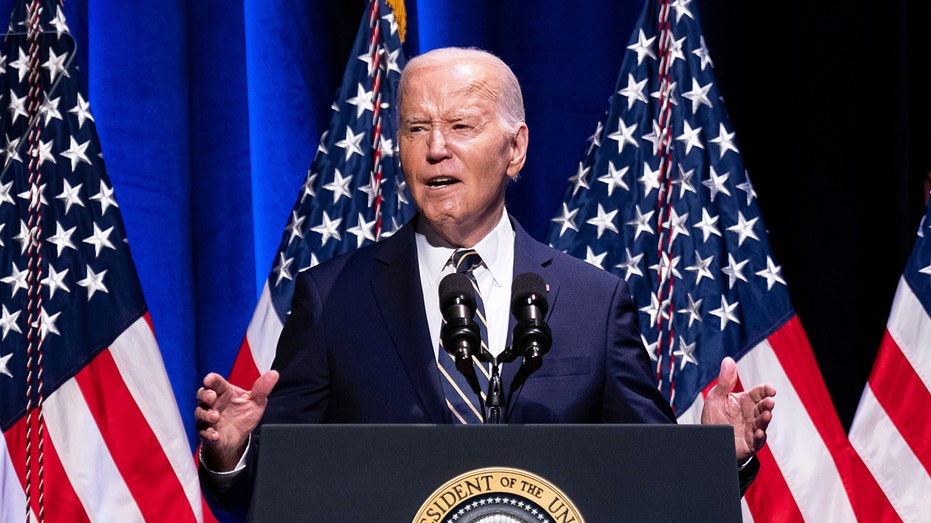Justice Barrett opens up about ‘awkward’ start on SCOTUS, shadow docket and more in forthcoming memoir
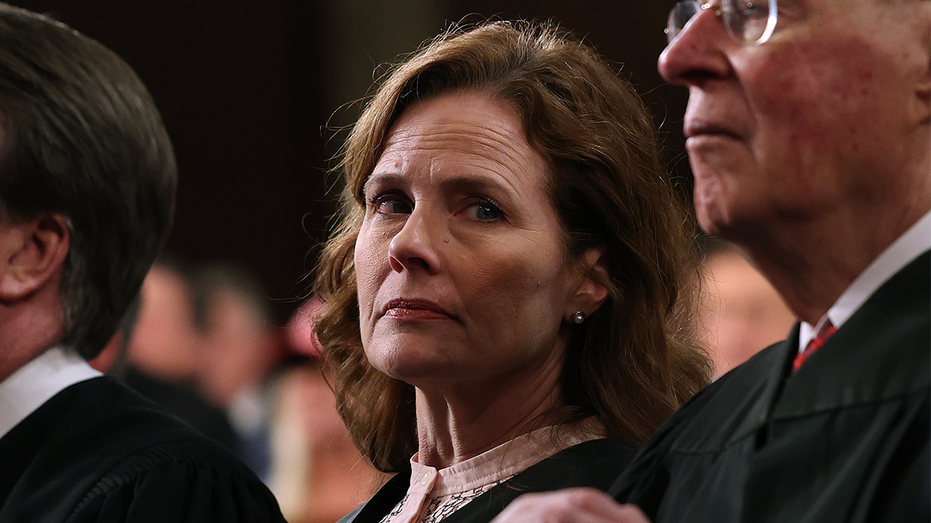
Supreme Court Justice Amy Coney Barrett hasn’t seen The Handmaid’s Tale. But she was well-prepared to be interrupted by any number of red-draped protesters, should they storm in to interrupt her confirmation hearing, the same way they did for her colleague, Brett Kavanaugh, several years prior.
As she recounted in an interview at the Lincoln Center Thursday night, the preparation had been for naught: Her confirmation took place behind closed doors, thanks to the COVID-19 pandemic and the social precautions in place at the time. It also made the lengthy confirmation process and her first days as a justice on the nation’s highest court “awkward,” she said, to laughter. “Very awkward.”
That revelation was just one of many Barrett made during a wide-ranging interview Thursday, just days before the publication of her forthcoming memoir, “Listening to the Law.”
Like her book, Barrett’s appearance proved to be as telling for what she didn’t say as for what she did.
JUSTICE BARRETT DEFENDS JACKSON JABS AS ‘WARRANTED’ IN RARE PUBLIC APPEARANCE
Barrett, 53, spoke easily about her family, her faith, and the kindness of her newfound colleagues on the Supreme Court, whom she says lent her not only the use of their office supplies and bench memos during her first days on the job, but also temporarily dispatched their own staff to help her answer phones and restock supplies. “There is an indispensable human element to judging,” Barrett observes in her memoir, something she says is all the more true when serving on a nine-person bench.
“Thinking in categories of left and right — it’s just the wrong way to think about the law,” she said Thursday night to the jam-packed audience at Alice Tully Hall.
Even so, Barrett artfully dodged some of the more polarizing issues the court has faced in the past eight months.
She was demonstrably less candid on questions involving the so-called emergency, or “shadow” docket — the vehicle by which President Donald Trump has sought to temporarily stay lower court decisions that would have paused or halted some of his most sweeping executive orders from taking force.
The Supreme Court has presided over a record blitz of emergency appeals and orders filed by the administration and other aggrieved parties during Trump’s first eight months back in office. Justices on the 6-3 conservative bench have ruled in Trump’s favor in the majority of emergency applications, allowing the administration to proceed with its ban on transgender service members in the military, its termination of millions of dollars in Education Department grants and its firing of probationary employees across the federal government, among many other actions.
The court has sided with Trump in the majority of these requests, prompting a fresh level of scrutiny — and rare public criticism from some of her colleagues on the bench.
The Supreme Court “is at its best when it can review cases that have been fully adjudicated” by the lower courts, she offered, before the conversation moved on.
BARRETT EVISCERATES JACKSON, SOTOMAYOR TAKES ON A ‘COMPLICIT’ COURT IN CONTENTIOUS FINAL OPINIONS
Barrett also sought to defend the court as a body that operates beyond the politics of a given moment, and (ideally) outside the reach of public opinion. She noted that public perceptions of what a judge ought to do is, at times, at odds with what the Constitution and existing Supreme Court precedent proscribe.
“I think everyone expects the court to deliver the results it likes,” Barrett said Thursday night. There’s a “disconnect between what people want in the moment,” and what the court should deliver, she said.
People “want what they want,” and will inevitably be disappointed by the results, she said.
Like other justices who have authored memoirs while on the bench, Barrett offered a lofty, and at times idealistic, view of the court.
Pressed by journalist Bari Weiss about her majority opinion in Trump v CASA earlier this year, Barrett insisted that her “spicy” remarks towards Justice Ketanji Brown Jackson were nothing more than an attempt to “set the calibration right.”
“I thought Justice Jackson had made an argument in strong terms that I thought warranted a response,” Barrett said.
CHIEF JUSTICE ROBERTS SOUNDS ALARM ON DANGEROUS RHETORIC AIMED AT JUDGES FROM POLITICIANS
Thursday night’s interview was the first of many public appearances Barrett is slated to give in coordination with her book release next week. It offered at times a refreshingly personal glimpse into her nearly five years on the Supreme Court — a job she says she wasn’t quite sure she wanted, when the offer finally came.
Barrett recounted what her husband told her at the time, when she was weighing whether to go through with the confirmation process. Should she choose to move forward, he told her, “We have to burn the boats.”
The phrase, adopted from Alexander the Great, refers to the notion that one must eliminate all options for backup plans or retreat.
It was one she held onto during the confirmation process, when media outlets pilloried her as an out-of-touch and hyper-religious mother of seven, when quips from lawmakers, such as then-Sen. Dianne Feinstein — “the dogma lives loudly within you” — might have rattled her further.
“To do the job well, you have to have thick skin,” she told the audience Thursday night.
She also dismissed fears of a constitutional crisis.
“I don’t think that we are currently in a constitutional crisis,” Barrett said. “I think that our country remains committed to the rule of law. I think we have functioning courts.”
